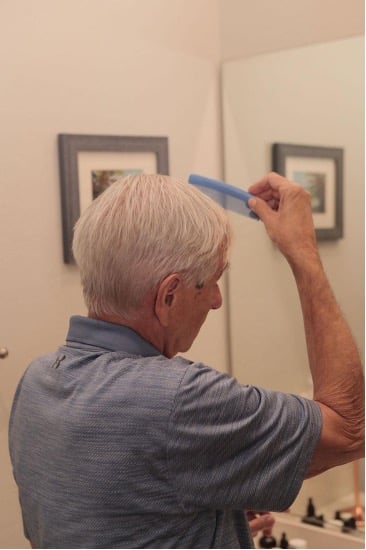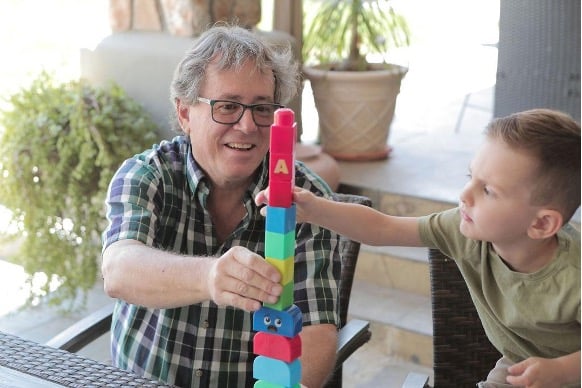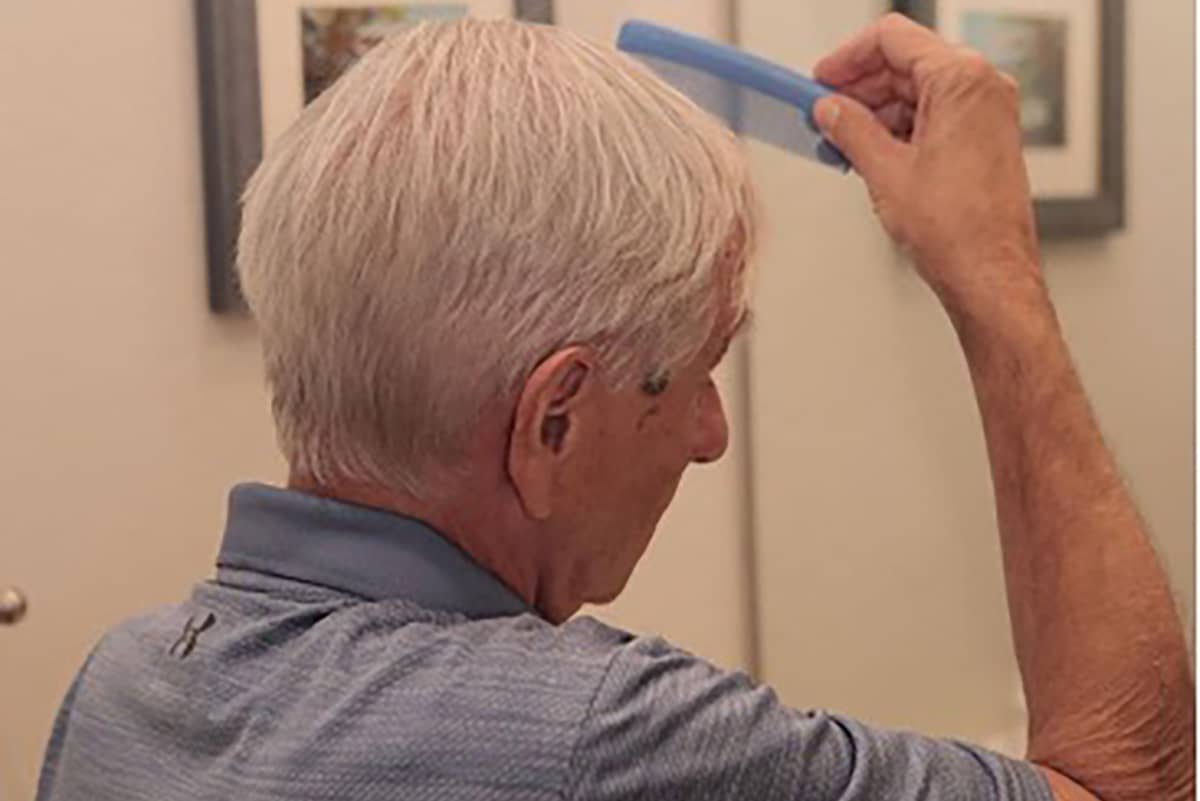dementia is a whole different story. We’ve all been told a slip in memory is a normal part of aging, but what if these start to feel like they’re happening more and more? Before any sort of panic sets in, breathe. Home Instead is here to help.
Understanding dementia vs. aging is a complex issue that cannot be done on your own. We want to walk you through every step of the dementia testing process, to help you remain calm and prepared if your diagnosis journey occurs.
What is the difference between dementia and normal aging?
Dementia and aging, while they may show similar symptoms, affect thinking and memory in different ways. Aging is a natural process in our life cycle that everyone goes through over time. While our memory and thinking skills may get a bit weaker as we get older, this does not need to be an automatic cause for concern.

Dementia is a medical condition that is completely different to normal aging. It involves persistent issues with memory and cognitive function that do not improve over time. Dementia can also lead to changes in behavior and activities. While occasional memory lapses are common for everyone, individuals with dementia experience frequent memory difficulties when performing routine tasks.
We want to help you understand these differences so you can better support your loved ones. If you’re struggling with any step in the diagnosis process, please don’t hesitate to reach out to Home Instead.
Can I “test” my loved one for dementia at home?
Short answer: no. The only way to accurately diagnose your loved one with dementia is through a healthcare provider. Although many dementia tests are marketed directly for at-home use, none have proven to be scientifically accurate. Worst of all, false-positive results are more likely to occur, creating unnecessary stress for your family.

If you see changes that resemble cognitive decline, trust your instincts and seek the help of a trusted healthcare provider. After all, you know your loved one best and these differentiations in behavior need to be taken seriously.
What are the doctor’s steps to test my loved one for dementia?
If you have a gut feeling your loved one may have dementia, the first step is to reach out to their primary caregiver. By working with someone who knows your loved one’s history, changes to patterns will be easier to detect. From there, a variety of testing will occur.
Here are the most common tests your caregiver will administer:
Medical Background
Medical history is the starting point for any diagnosis, but especially in patients displaying symptoms of dementia. Understanding psychiatric, physical, and medication background will create a baseline to alter or look back on as changes occur.
Physical Exam
Physical exams are the next step in determining the root cause of your loved one’s change in normal functions. Diet, exercise, and daily habits are the first questions to be tracked, followed by a typical physical workup. During this phase, blood and urine testing are common as well.
After the physical exam, this is where typically the difference between dementia vs. agency is established. If your loved one is displaying more than the typical signs of aging, additional dementia tests will occur.
Neurological Exam
Neurological exams are where doctors are evaluating brain functions that have potentially become disordered due to dementia. Although symptoms are displayed in different forms, the goal of this exam step is to establish what is impairing brain function or memory.
More than likely, your loved one’s doctor will examine:
- Speech
- Coordination
- Muscle strength
- Balance
During this phase, a brain imaging study is not uncommon for their doctor to request.
Cognitive And Behavioral Exams
These steps in the complete exam process are primarily focusing on memory and problem-solving skills. Although many of these tests differ in time length, all together they create a strong baseline to compare if cognitive decline continues to occur. Through this, symptoms that persistently affect daily living are easier to see.
Here are examples to tests your doctor may recommend for cognitive and behavior exams:
- Mini-Mental State Examination (MMSE): A brief test assessing memory, attention, and language skills.
- Montreal Cognitive Assessment (MoCA): Evaluates cognitive abilities, including memory, attention, and visual-spatial skills.
- Geriatric Depression Scale (GDS): Evaluates mood and detects symptoms of depression in older adults.
- Clinical Dementia Rating (CDR): Rates cognitive impairment severity and its impact on daily life activities.
The specific tests recommended depend on your loved one’s symptoms, medical history, and suspected conditions.
My loved one is showing signs of dementia… When is the right time to introduce a caregiver?
The right time to introduce additional help into your loved one’s routine is now. Without early prevention, it’s very difficult to undo the changes that occur with cognitive decline. The sooner a caregiver is brought into your home and the daily routine, the longer your loved one can continue to function independently.

If a caregiver feels like the next step for your family, we want to be there to help. Through working with Home Instead, our Care Pros will dedicate themselves to providing the best possible care for your entire family, while still remaining intentional in keeping your loved one’s independence at the forefront of everything we do. If you have any questions regarding how to navigate this complex time in your loved one’s life, please don’t hesitate to reach out to Home Instead.



